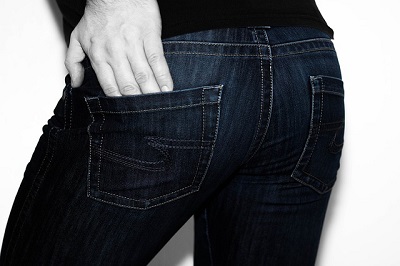What to Do if You Have Hemorrhoids and Prostatitis at the Same Time
In daily life, many people may face the troublesome health issue of having both hemorrhoids and prostatitis. Although these two conditions affect different areas, they cause significant inconvenience and discomfort to patients. So, how should we deal with these two conditions when they co-occur?

Hemorrhoids, a common anorectal disease, can cause symptoms such as anal pain, bleeding, and itching. Prostatitis, on the other hand, is a common inflammation of the male reproductive system, often presenting symptoms like frequent urination, urgency, painful urination, and pain in the lower abdomen or perineum. When both conditions coexist, the patient's pain and discomfort are often doubled.
Why do these seemingly unrelated conditions occur together?
On one hand, poor lifestyle habits may be the culprit. For example, prolonged sitting can not only affect blood circulation in the pelvic area, increasing the risk of hemorrhoids but also keep the prostate under pressure for extended periods, leading to inflammation. On the other hand, an unreasonable diet, such as excessive consumption of spicy and greasy foods, can irritate the anorectal area, trigger hemorrhoids, and negatively impact the prostate.
What should you do if you have both hemorrhoids and prostatitis?
When hemorrhoids and prostatitis co-occur, the treatment needs to be more comprehensive and holistic. For hemorrhoids, treatment should be tailored to the individual's condition.
If the condition is mild, symptoms can be alleviated through sitz baths. Prepare an appropriate amount of warm saline or herbal sitz bath solution and soak for 15-20 minutes daily. This can promote local blood circulation in the anal area, relieve sphincter spasms, and reduce the sensation of anal swelling and itching caused by hemorrhoids. Additionally, oral medications to improve microcirculation can enhance vascular elasticity and minimize bleeding.
Another option is to directly administer medication into the rectum, such as suppositories or ointments, which are over-the-counter drugs aimed at achieving localized effects. This method is particularly effective for conditions like prolapsed hemorrhoids and anal dampness.
If the hemorrhoids are more severe, such as prolapsed internal hemorrhoids that cannot be retracted or heavy bleeding, surgical intervention may be necessary. Procedures like hemorrhoidectomy or stapled hemorrhoidopexy can address these issues effectively.
The treatment of prostatitis is relatively more complex.
For bacterial prostatitis, doctors will select sensitive antibiotics based on the results of a drug sensitivity test. Herbal remedies like Diuretic and Anti-inflammatory Pill can also be used for treatment.
For non-bacterial prostatitis, medications that relieve smooth muscle spasms may be used. Diuretic and Anti-inflammatory Pill can also help eliminate inflammatory infections and improve abnormal urination. Physical therapies such as prostate massage and thermotherapy can promote blood circulation in the prostate and accelerate the resolution of inflammation to some extent.
Adjustments in daily lifestyle also need to be approached from multiple angles.
First, it is crucial to develop good bowel habits. Ensure regular bowel movements are performed daily, minimize the time spent on the toilet, and avoid distractions such as reading or using a phone during defecation.
Second, pay attention to anal hygiene. Clean the anus with warm water after each bowel movement to keep the area dry and clean.
Third, care for the prostate by keeping it warm, avoiding prolonged cycling or sitting on hard surfaces, and allowing adequate rest.
Incorporate iron-rich foods into your diet, and take frequent breaks to walk around and perform pelvic floor exercises to prevent the recurrence of hemorrhoids.
Additionally, moderate sexual activity can aid in the recovery from prostatitis, but it is crucial to avoid excessive indulgence or prolonged abstinence. Ensure adequate, high-quality sleep to facilitate the body's self-repair and enhance immunity.
In summary, when hemorrhoids and prostatitis co-occur, patients should not panic. Timely medical consultation, cooperation with the prescribed treatment, lifestyle dietary adjustments, and a positive attitude can effectively control the conditions. Regular follow-up exams are recommended to monitor changes, especially for prostatitis, to prevent the risk of urinary tract infections post-hemorrhoid surgery.
You may also be interested in:
Can hemorrhoids cause prostatitis?
What's the Connection between Prostatitis and Hemorrhoids?
Why Some Patients with Severe Hemorrhoids Will Infect Prostatitis?



